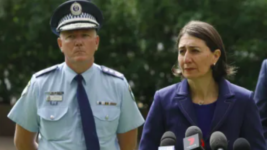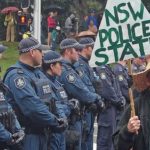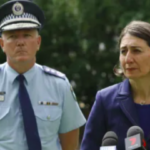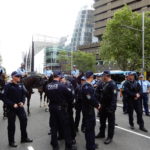Teen Fined $1,000 for Not Breaking the Law

Public pressure is mounting over the heavy-handed actions of New South Wales police officers during the COVID-19 pandemic, which has seen them handing out tens of thousands of dollars in fines, with the latest being to a teenager who had not even broken the rules.
MPs were stunned when New South Wales Police Commissioner, Mick Fuller, couldn’t answer with questions in Parliament relating to a fine handed to the teen for leaving home ‘without a reasonable excuse’.
Teenager fined for doing nothing wrong
Last week, Premier Gladys Berejiklian relaxed laws which have been in place since March. As of May 18, people have been allowed to move about more freely and have up to five visitors at home. Public gatherings of up to ten people are also allowed. Pubs and cafes and clubs have been opened too, with restrictions.
But it would appear that police in Emu Plains didn’t get the memo. In a press statement regarding a $1000 infringement notice issued to a 19-year old man only hours after laws had been revoked, Police said the man was fined because he “could not provide a reasonable excuse for leaving home”.
When the teenager’s case was raised in the Senate only days later, and the Police Commissioner was asked by Greens MP David Shoebridge to explain his understanding of the current laws, he said rather vaguely:
“In terms of where we started from the first order being struck, the intent of the orders, there is certainly plenty of reasonable excuses to be out now.”
He also responded that the issue could not be divorced from other restrictions around gatherings and closures, telling the senate: “You can’t just ask that question in isolation. I’ll take that on notice and give you a legal answer.”
He later added: “We know the health orders have been amended and from my perspective the NSW Police have done an outstanding job applying powers in a very difficult situation.”
Passing the buck
Police Minister David Elliott came to the defence of the Police Chief, saying that he objected to the line of questioning, which was a matter for Health Minister Brad Hazzard.
Say what? That’s some serious buck-passing, considering the fact that, as the State’s Police Chief, Mick Fuller has the responsibility of overseeing his team of police officers, who have a duty to uphold the law.
Many would agree that it is not at all beyond the scope of the Police Chief’s role to know the details of the laws, and how they should be applied to ensure public safety and enforce social order.
In fact, only recently he was rewarded with a very hefty pay rise to do this job.
In March, April and May, the police have made haphazard, confusing decisions about what constitutes a breach of the Covid-19 public health laws and there has been a distinct lack of transparency behind the reasons fines have been handed out. The backlash has been severe.
Transferring the burden to innocent member of the public and the courts
In response to the issue of the 19-year old, Mr Fuller told the senate that the teenager could contact him to ask for a review of the fine, or proceed with the matter to court.
Mr Fuller has personally reviewed 1000 of the fines issued since March, and revoked about 30 of them. Is this really the best, most effective use, of the Police Commissioner’s time?
The other avenue, as Mr Fuller himself suggests is that someone who believes they have been fined unnecessarily can go to court to argue their case.
But this is one of the significant problems of over-policing, such as handing out expensive fines with arbitrary discretion and little forethought – it transfers the burden of the police force’s overzealous actions to the justice system.
This ends up being costly for the individual arguing the infringement. It’s also stressful, and time consuming.
It also simply adds to the pressures on the justice system, which is already stretched to beyond capacity.
Given that COVID-19 has meant a significant interruption to court processes, waiting times will only get longer in the coming months, when court resumes, and this is without taking into account the potentially hundreds of people who will want to dispute their fines in court.
That’s not to say that anyone who believes they have been wrongly fined shouldn’t appeal. But it’s likely that a case taken to court will take some months to resolve, costing time and money for those who pursue a court election.







